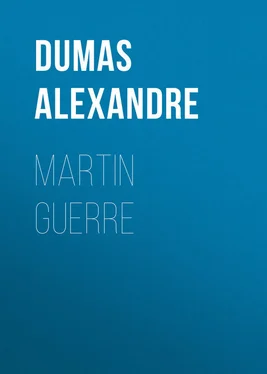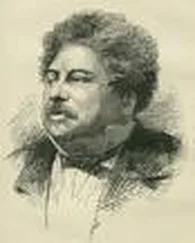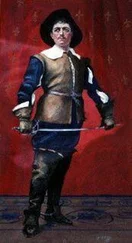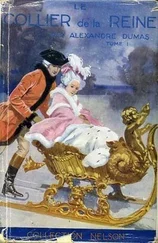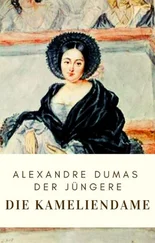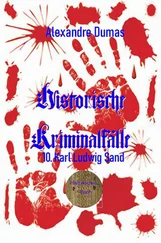Alexandre Dumas - Martin Guerre
Здесь есть возможность читать онлайн «Alexandre Dumas - Martin Guerre» — ознакомительный отрывок электронной книги совершенно бесплатно, а после прочтения отрывка купить полную версию. В некоторых случаях можно слушать аудио, скачать через торрент в формате fb2 и присутствует краткое содержание. Жанр: literature_19, foreign_antique, foreign_prose, на английском языке. Описание произведения, (предисловие) а так же отзывы посетителей доступны на портале библиотеки ЛибКат.
- Название:Martin Guerre
- Автор:
- Жанр:
- Год:неизвестен
- ISBN:нет данных
- Рейтинг книги:3 / 5. Голосов: 1
-
Избранное:Добавить в избранное
- Отзывы:
-
Ваша оценка:
- 60
- 1
- 2
- 3
- 4
- 5
Martin Guerre: краткое содержание, описание и аннотация
Предлагаем к чтению аннотацию, описание, краткое содержание или предисловие (зависит от того, что написал сам автор книги «Martin Guerre»). Если вы не нашли необходимую информацию о книге — напишите в комментариях, мы постараемся отыскать её.
Martin Guerre — читать онлайн ознакомительный отрывок
Ниже представлен текст книги, разбитый по страницам. Система сохранения места последней прочитанной страницы, позволяет с удобством читать онлайн бесплатно книгу «Martin Guerre», без необходимости каждый раз заново искать на чём Вы остановились. Поставьте закладку, и сможете в любой момент перейти на страницу, на которой закончили чтение.
Интервал:
Закладка:
Alexandre Dumas
Martin Guerre / Celebrated Crimes
We are sometimes astonished at the striking resemblance existing between two persons who are absolute strangers to each other, but in fact it is the opposite which ought to surprise us. Indeed, why should we not rather admire a Creative Power so infinite in its variety that it never ceases to produce entirely different combinations with precisely the same elements? The more one considers this prodigious versatility of form, the more overwhelming it appears.
To begin with, each nation has its own distinct and characteristic type, separating it from other races of men. Thus there are the English, Spanish, German, or Slavonic types; again, in each nation we find families distinguished from each other by less general but still well-pronounced features; and lastly, the individuals of each family, differing again in more or less marked gradations. What a multitude of physiognomies! What variety of impression from the innumerable stamps of the human countenance! What millions of models and no copies! Considering this ever changing spectacle, which ought to inspire us with most astonishment – the perpetual difference of faces or the accidental resemblance of a few individuals? Is it impossible that in the whole wide world there should be found by chance two people whose features are cast in one and the same mould? Certainly not; therefore that which ought to surprise us is not that these duplicates exist here and there upon the earth, but that they are to be met with in the same place, and appear together before our eyes, little accustomed to see such resemblances. From Amphitryon down to our own days, many fables have owed their origin to this fact, and history also has provided a few examples, such as the false Demetrius in Russia, the English Perkin Warbeck, and several other celebrated impostors, whilst the story we now present to our readers is no less curious and strange.
On the 10th of, August 1557, an inauspicious day in the history of France, the roar of cannon was still heard at six in the evening in the plains of St. Quentin; where the French army had just been destroyed by the united troops of England and Spain, commanded by the famous Captain Emanuel Philibert, Duke of Savoy. An utterly beaten infantry, the Constable Montmorency and several generals taken prisoner, the Duke d’Enghien mortally wounded, the flower of the nobility cut down like grass, – such were the terrible results of a battle which plunged France into mourning, and which would have been a blot on the reign of Henry II, had not the Duke of Guise obtained a brilliant revenge the following year.
In a little village less than a mile from the field of battle were to be heard the groans of the wounded and dying, who had been carried thither from the field of battle. The inhabitants had given up their houses to be used as hospitals, and two or three barber surgeons went hither and thither, hastily ordering operations which they left to their assistants, and driving out fugitives who had contrived to accompany the wounded under pretence of assisting friends or near relations. They had already expelled a good number of these poor fellows, when, opening the door of a small room, they found a soldier soaked in blood lying on a rough mat, and another soldier apparently attending on him with the utmost care.
“Who are you?” said one of the surgeons to the sufferer. “I don’t think you belong to our French troops.”
“Help!” cried the soldier, “only help me! and may God bless you for it!”
“From the colour of that tunic,” remarked the other surgeon, “I should wager the rascal belongs to some Spanish gentleman. By what blunder was he brought here?”
“For pity’s sake!” murmured the poor fellow, “I am in such pain.”
“Die, wretch!” responded the last speaker, pushing him with his foot. “Die, like the dog you are!”
But this brutality, answered as it was by an agonised groan, disgusted the other surgeon.
“After all, he is a man, and a wounded man who implores help. Leave him to me, Rene.”
Rene went out grumbling, and the one who remained proceeded to examine the wound. A terrible arquebus-shot had passed through the leg, shattering the bone: amputation was absolutely necessary.
Before proceeding to the operation, the surgeon turned to the other soldier, who had retired into the darkest corner of the room.
“And you, who may you be?” he asked.
The man replied by coming forward into the light: no other answer was needed. He resembled his companion so closely that no one could doubt they were brothers-twin brothers, probably. Both were above middle height; both had olive-brown complexions, black eyes, hooked noses, pointed chins, a slightly projecting lower lip; both were round-shouldered, though this defect did not amount to disfigurement: the whole personality suggested strength, and was not destitute of masculine beauty. So strong a likeness is hardly ever seen; even their ages appeared to agree, for one would not have supposed either to be more than thirty-two; and the only difference noticeable, besides the pale countenance of the wounded man, was that he was thin as compared with the moderate fleshiness of the other, also that he had a large scar over the right eyebrow.
“Look well after your brother’s soul,” said the surgeon to the soldier, who remained standing; “if it is in no better case than his body, it is much to be pitied.”
“Is there no hope?” inquired the Sosia of the wounded man.
“The wound is too large and too deep,” replied the man of science, “to be cauterised with boiling oil, according to the ancient method. ‘Delenda est causa mali,’ the source of evil must be destroyed, as says the learned Ambrose Pare; I ought therefore ‘secareferro,’ – that is to say, take off the leg. May God grant that he survive the operation!”
While seeking his instruments, he looked the supposed brother full in the face, and added —
“But how is it that you are carrying muskets in opposing armies, for I see that you belong to us, while this poor fellow wears Spanish uniform?”
“Oh, that would be a long story to tell,” replied the soldier, shaking his head. “As for me, I followed the career which was open to me, and took service of my own free will under the banner of our lord king, Henry II. This man, whom you rightly suppose to be my brother, was born in Biscay, and became attached to the household of the Cardinal of Burgos, and afterwards to the cardinal’s brother, whom he was obliged to follow to the war. I recognised him on the battle-field just as he fell; I dragged him out of a heap of dead, and brought him here.”
During his recital this individual’s features betrayed considerable agitation, but the surgeon did not heed it. Not finding some necessary instruments, “My colleague,” he exclaimed, “must have carried them off. He constantly does this, out of jealousy of my reputation; but I will be even with him yet! Such splendid instruments! They will almost work of themselves, and are capable of imparting some skill even to him, dunce as he is!.. I shall be back in an hour or two; he must rest, sleep, have nothing to excite him, nothing to inflame the wound; and when the operation is well over, we shall see! May the Lord be gracious to him!”
Then he went to the door, leaving the poor wretch to the care of his supposed brother.
“My God!” he added, shaking his head, “if he survive, it will be by the help of a miracle.”
Scarcely had he left the room, when the unwounded soldier carefully examined the features of the wounded one.
“Yes,” he murmured between his teeth, “they were right in saying that my exact double was to be found in the hostile army.. Truly one would not know us apart!.. I might be surveying myself in a mirror. I did well to look for him in the rear of the Spanish army, and, thanks to the fellow who rolled him over so conveniently with that arquebus-shot; I was able to escape the dangers of the melee by carrying him out of it.”
Читать дальшеИнтервал:
Закладка:
Похожие книги на «Martin Guerre»
Представляем Вашему вниманию похожие книги на «Martin Guerre» списком для выбора. Мы отобрали схожую по названию и смыслу литературу в надежде предоставить читателям больше вариантов отыскать новые, интересные, ещё непрочитанные произведения.
Обсуждение, отзывы о книге «Martin Guerre» и просто собственные мнения читателей. Оставьте ваши комментарии, напишите, что Вы думаете о произведении, его смысле или главных героях. Укажите что конкретно понравилось, а что нет, и почему Вы так считаете.
